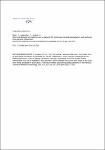Stem cell-derived cell cultures and organoids for protozoan parasite propagation and studying host–parasite interaction
Klotz, Christian
Aebischer, Toni
Seeber, Frank
Possibilities to study the biology of human protozoan parasites and their interaction with the host remain severely limited, either because of non-existent or inappropriate animal models or because parasites cannot even be cultured in vitro due to strict human-host specificity or physiology. Here we discuss the prospects of using induced pluripotent stem cell (iPSC)-derived culture systems including organoids as a strategy to address many of these experimental bottlenecks. iPSCs already allow the generation of differentiated cell cultures for many human organs, and these cells and derivatives are amenable to reverse genetics in combination with advanced tools for genetic manipulation. We present examples of blood, neuron, liver, and intestine-dwelling protozoa, i.e. Plasmodium falciparum, Toxoplasma gondii and Giardia duodenalis, where iPSCs or organoids would allow addressing questions of cell and developmental biology, immunology, and pharmacology in unprecedented ways. Starting points and resources for iPSC experimentation are briefly discussed.
No license information

